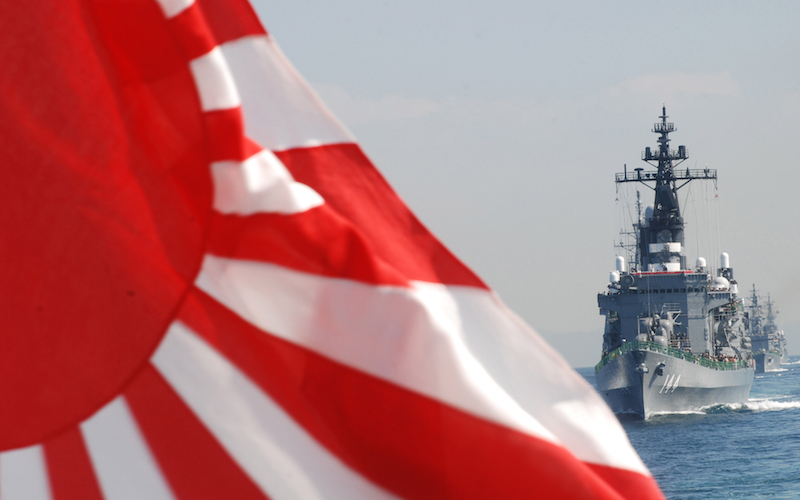
Is Japan’s Collective Self Defense as Bad as China Suggests?
Earlier this month, after prolonged heated debates, Japan passed a resolution which partially allows lifting the ban on the right to collective self-defense (CSD). Immediately, China cited the change as a threat to the Asia-Pacific region. China’s Foreign Ministry spokesman Hong Lei described this as an aggressive act “deviating from the path of peaceful development” and the Chinese state-owned media heavily criticized Japanese leaders for “challenging post-war international order.” However, is Japan’s CSD as bad as China claims it to be?
The need and the conditions
The need for a change in defense policy has been increasingly felt in Japan. The resolution, which is entitled the “Cabinet Decision on Development of Seamless Security Legislation to Ensure Japan’s Survival and Protect its People,” clearly states that the security landscape surrounding Japan since 1947 has radically changed due to a number of factors including territorial disputes, big countries’ balance of power, and innovation in military technology. Also, a country’s defense policy is, to a large extent, shaped by the continuous interactions and policies made by others. Japan’s move can be seen ass a response to Chinese efforts to change the balance of power in Asia-Pacific and the existing order.
Japan’s effort to adapt itself to such a complex and changing environment is not incomprehensible. Yet, putting necessity aside, Japan has set three conditions, which have to be proven real and in unison, for engaging in an act of collective defense. Particularly, Japan can only exercise CSD “to the minimum extent” when “there is no other appropriate means available.”
One can interpret that “minimum” as the right to defend itself which is the right of every nation as recognized by Article 51 of the United Nations Charter. The third condition is that a close-tied country under armed attack has to pose an apparent threat to Japan’s existence as well as its people’s life, liberty and pursuit of happiness.
Challenging post-war order or contributing to the protection of it?
CSD can enable Japan to protect its citizens living abroad or for a more particular example, to aid its allies, namely the U.S (or even South Korea), in case of an attack from North Korea. Taking into consideration North Korea’s unpredictable behaviour, Japan, with a geographic and technological advantage, can play a role in preventing Pyongyang from making a decision to attack other states. To prevent a possible reckless action by North Korea, then seems to support the maintenance of stability that the existing international order seeks to preserve. Of course, Japan’s CSD decision must be made in close consultation with the United States. The CSD will likely strengthen the existing security arrangements in the region not destroy it. Further, the CSD does not disavow Japan’s pacifist commitment as it does not revise the existing constitution which requires two-thirds approval in both houses of the Diet and a majority of voters in a nationwide referendum (something rather improbable even years from now).
While CSD doesn’t fundamentally change the role of Japanese Self-Defense Force (hereby SDF), in case of supporting the US, the SDF will likely to perform logistical and technical assistance rather than teaming up with the U.S on the front line. At the same time, the resolution relaxes limits on SDF’s activities in UN’s peacekeeping operations, which can be viewed as a positive contribution to global peace. It is also worth noting that Abe himself has carefully excluded military operations regarding ‘collective security’ in his proposal. Abe reaffirmed that Japan won’t again take part in operations like the Iraq War.
Is China the sole opposing side?
For the above-mentioned attributions, CSD seems to have gained understanding and support from Japanese public opinion. While the public, according to Mainichi’s poll, clearly shows the disapproval of Japan going to war, only half oppose CSD. The CSD serves the purpose of strengthening Japan – US cooperation in terms of national defense which has gained domestic approval. Statistically, the official survey by Japan’s Ministry of Defense demonstrated that the number of Japanese people in favor of SDF and its activities has been increasing over the years. The need to be more prepared in the future is recognized in Japan.
Understanding and support have also been recorded from outside Japan. The Republic of Korea (ROK), due to its historical experiences with Japanese militarism, has reservations on CSD. Its MOFA statement, however, considered Japan’s move an important shift in security policy that needs monitoring, affirming that Japan had to acquire ROK’s permission to be able to exercise CSD on its soil. South Korean Political Scientist Park Hwee-rhak of Kookmin University welcomes the possibility of Japan cooperation in order to check North Korea, stating that South Korea “should not view Japan’s decision too emotionally.” Many other countries, notably the U.S, Australia, New Zealand, and even South East Asian nations who suffered from Japanese militarism during World War II (namely Cambodia and the Philippines) have all publicly come out in favor of Japan’s decision.
All in all, CSD is a justifiable adjustment to the regional landscape without breaking Japan’s pacifist commitment. Thus, China’s accusation of Japan’s having deviated from the path of peaceful development, thereby challenging post-war international order, seems to be too alarmist.
